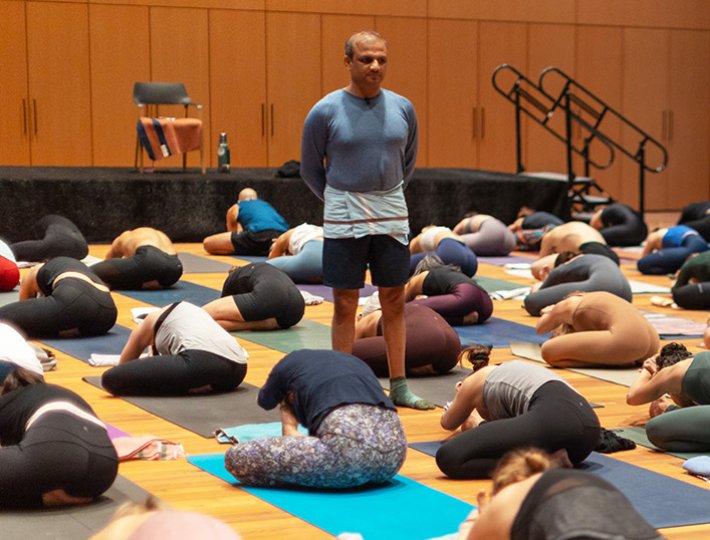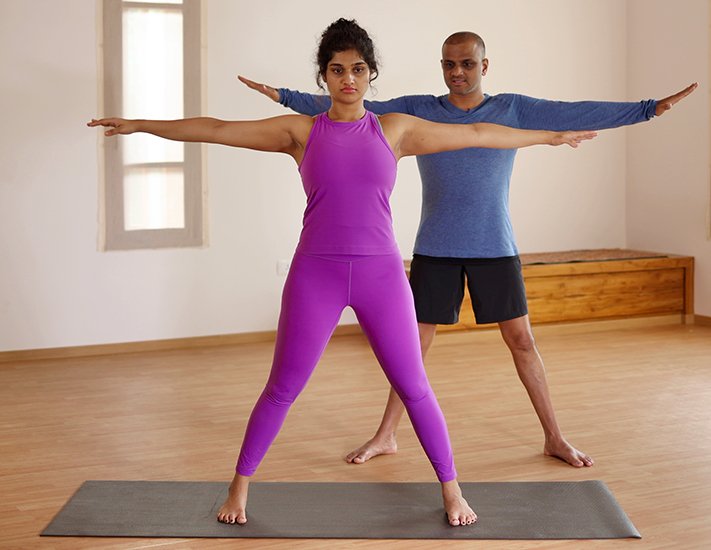When Yvette Carmon Davis worked full-time as a lawyer in Columbus, Ohio, her jam-packed schedule made it so that her physical activities were sporadic at best. “I walked and went to a gym off and on, but never stuck to a consistent routine,” says the 64-year-old. What was consistent, however, was her less-than-ideal sleep patterns. “I’d usually get about six hours of sleep each night because around 3 a.m., I’d almost always wake up and not be able to go back to sleep for a couple hours,” she says. After a while, Davis noticed something interesting: On those days when she was able to sneak in a walk or workout class at the gym, she’d sleep soundly through the night.
Her theory that exercise improved her sleep was confirmed when she moved to San Diego last year, leaving her job at a law firm to become a writer. “Now I walk three miles a day, an average of five days a week, and I regularly sleep eight hours a night,” says Davis. “Even better, my sleep feels more restful. If I wake up in the middle of the night, I go right back to sleep. I feel like this has to be due to my new regular exercise routine.”
New research shows that Davis is on to something: One study of more than 2,500 men and women between the ages of 18 and 85 found that just two-and-a-half hours of moderate to vigorous exercise each week can improve sleep quality by a whopping 65 percent. And those regular sweat sessions have a double-whammy effect. Those who break a sweat say they get more and better shut-eye each night and report feeling less sleepy during the day than those who don’t get as much physical activity.
The most recent survey by the National Sleep Foundation found similar results, showing a compelling association between exercise and better sleep. After reviewing data from a sample of 1,000 adults between the ages of 23 and 60, not only did exercisers report sleeping well and non-exercisers report being the sleepiest, but those who said their movement qualified as “vigorous” reported the best sleep.
“There is a lot of new, exciting research that shows exercise does improve sleep,” says Robert S. Rosenberg, D.O., a board-certified sleep medicine practitioner and the medical director of the Sleep Disorders Center of Prescott Valley in Arizona. “In fact, sleep research that was previously used as gold standard advice—for example, not working out in the evenings—has been debunked,” says Rosenberg.
Sharing Rosenberg’s sentiments are held by Meir Kryger, M.D., a professor of medicine at Yale University and editor-in-chief of the most widely used textbook in sleep medicine, The Principles and Practice of Sleep Medicine. Kryger adds that the exercise-sleep benefits also work both ways. “Not only is there data to suggest that exercise improves nighttime sleep, but there’s research showing the opposite is true as well—that good sleep enhances your ability to exercise,” says Kryger.
Need a little push to set the alarm earlier for a morning walk or to make the effort to get to that yoga class after a long day at work? Here’s the newest thinking on why moving your body works so well to help you get a better night’s rest.
Exercise prompts deeper sleep. When scientists looked at the brain waves of exercisers versus non-exercisers during the night, they found that those who work out experience more slow wave sleep. Why? It’s during slow wave sleep that you produce the most growth hormone, says Rosenberg, which is needed to repair muscle tissue that’s broken down when you exercise. And while all of this repair work happens on a deep level that you likely won’t pick up on, what you will notice is waking up feeling rejuvenated after a night of profound, uninterrupted sleep.
Related: Try this sleep meditation for a restful night.
Breaking a sweat changes body temps. Physical movement causes your core body temperature to rise. As you cool down, that body temp drops, too. “This drop in body temperature is one of the body’s signals that it’s time to sleep,” says Rosenberg. This is one theory behind the new research that shows those who exercise within two hours of bedtime sleep better than those who don’t exercise. “You can officially ignore that old advice about not exercising in the evenings,” he says. “While we used to think it hindered sleep, we now know it can actually help.”
Working out blisses you out. Anyone who’s ever experienced a “runner’s high” or that post-yoga glow understands that exercise almost always results in an improvement in mood—and research has finally proven why. “We always used to talk about exercise-induced endorphins—those feel-good hormones that lift our spirits,” says Rosenberg. Now, scientists have measured something called brain-derived neurotrophic factor (BDNF), one of many nerve growth factors in the body that has been associated with both improved mood and cognitive function. Studies show that exercise boosts BDNF levels, which lifts your spirits and wards against depression. So, if you chalk your sleep issues up to feeling down or ruminating about the darker aspects of your life, a good sweat session may go a long way toward easing your blues—and helping you snag a better night’s rest as a result.
Exercise makes you less anxious. Ever notice how you sleep like a baby when you’re on vacation? Odds are, it has something to do with the reprieve from your daily stressors, such as a demanding boss or never-ending to-do list. Turns out regular exercise can mitigate this ever-present, low-grade stress enough to help you get more Zzz’s. Sleep specialists have known for a while now that exercise stimulates the creation of new brain cells. Now, research is showing that those new neurons are actually more resistant to stress than the older ones. It’s almost as if the positive “stress” of exercise preps the body to be able to better handle stress in other forms, says Rosenberg. What’s more, the stress-relieving effects of exercise seem to last through the night. “While everyone experiences a drop in the stress hormone cortisol at night, it appears that exercisers experience a more drastic decrease,” he says.
Fitness helps sustain all-day energy. Moving your body doesn’t just help you count fewer sheep. Research shows it can also boost alertness during the day. One study published in the journal Neuroscience Letters found that study participants experienced improved mental alertness and reaction time during periods when they were exercising regularly versus times when they were sedentary. Couple this with the better rest you’ll get on a regular basis and you can kiss those 3 p.m. slumps goodbye.
Photo by Hailey Wist











Comments (0)